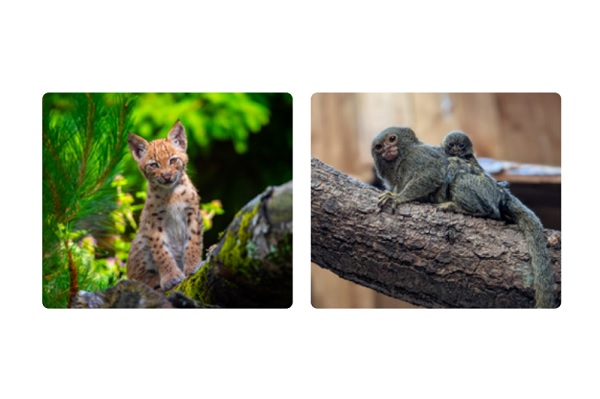 Credit: Zoo d'Amnéville
Credit: Zoo d'Amnéville
On Friday 1 August 2025, Amnéville Zoo, located over the border in the Grand Est region of France, announced a series of recent births at the zoo, some of which are “exceptional” for species conservation.
Spring this year once again marked the arrival of several newborns at Amnéville Zoo: southern ground (Leadbeater’s) hornbills (birds), pygmy marmosets (primates), white-faced sakis (primates), Carpathian lynx, Humboldt penguins, black kites (birds), Ural owls, mountain caracaras (birds) and box turtles.
The zoo said these births demonstrate the daily dedication of its teams and its commitment to biodiversity. “Beyond the satisfaction of these successful reproductions, this represents a true commitment to the conservation of endangered species, some of which are critically endangered in their natural environment,” it stated.
Amnéville Zoo noted that some species are “particularly sensitive and difficult to reproduce”. For example, the southern ground hornbill reproduces naturally under the care of its parents, helped by the young from previous years - “a complex family lifestyle where mistakes are possible”. Very few other pairs are known to be capable of such a feat in a zoological park, “the result of an extremely fine balance, well mastered by [the zoo’s] teams, between the assistance provided to the parents and the autonomy they are given”.
Similarly, the mountain caracara is a rare species in captivity: the breeding pair at Amnéville Zoo is one of the very few in Europe to reproduce. In 2025, only three young were born in captivity worldwide, including two here in Amnéville.
One of the notable births is that of the Ural owl. Amnéville Zoo said this species is “of major importance” for conservation. Like his big sister last year, the young male was sent on Wednesday 30 July 2025 to be reintroduced to Bavaria (Germany), thus actively contributing to the preservation of the species in this region of Europe.
Reproduction is carefully managed daily by the zoological teams. The zoo noted that many animals are placed on contraception to preserve genetic diversity within captive populations and to ensure the placement of young animals in the best possible conditions within other partner institutions.
For more than 40 years, thousands of animals - reptiles, birds and mammals - have been born at Amnéville Zoo. 2025 was no exception, with particular attention paid to the most endangered species.








